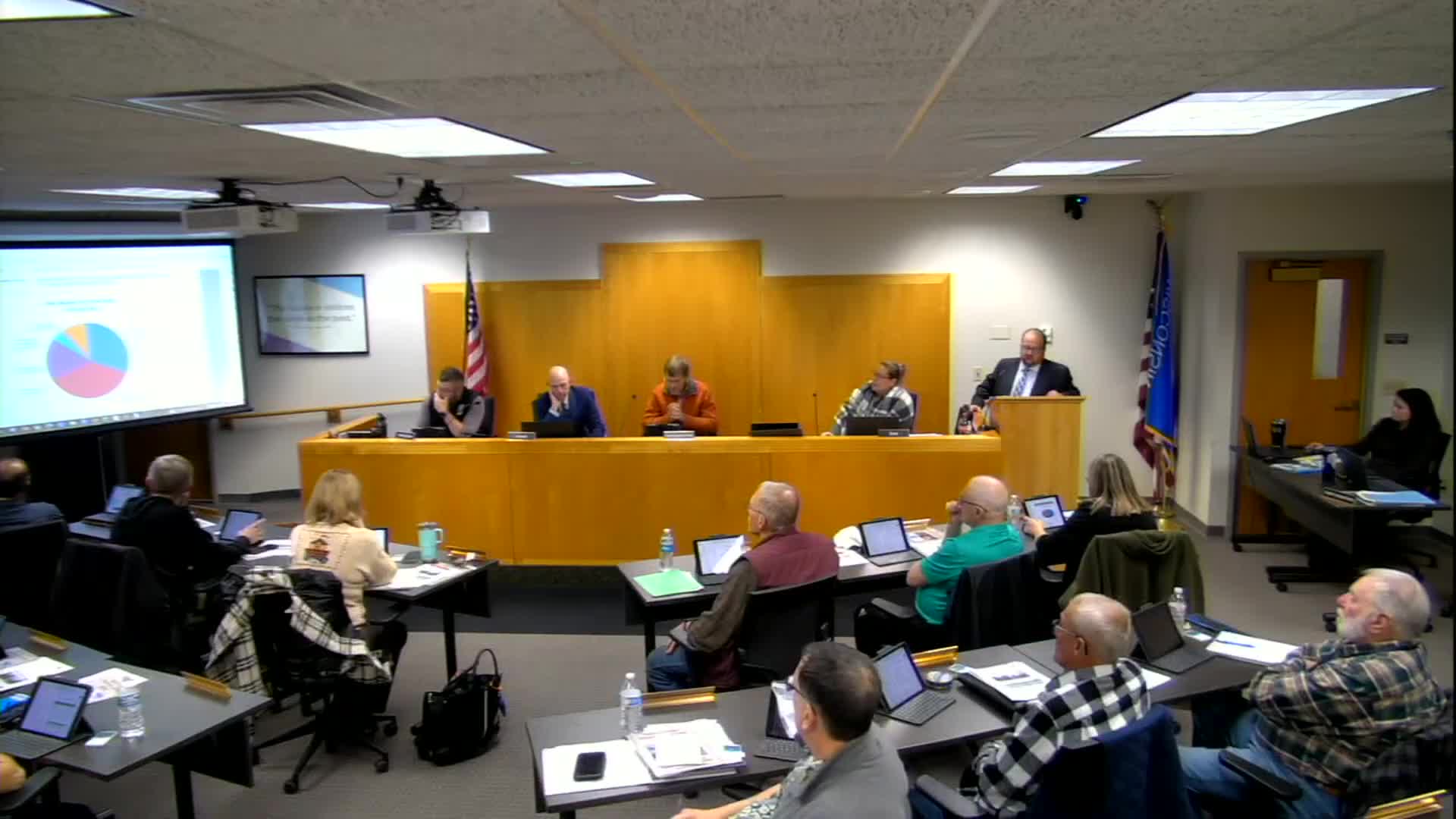Highway commissioner says county below recommended paving cycle; reports four bridge replacements and staffing gains
Get AI-powered insights, summaries, and transcripts
Subscribe
Summary
Chris, Chippewa County's highway commissioner, presented the required annual highway operations report, reporting that the county paved 12.9 miles this year, completed four bridge replacements and is projecting limited paving for 2026.
Chris, Chippewa County's highway commissioner, presented the annual highway operations report required by state statute and answered supervisors' questions on long-term road funding.
Paving and maintenance: The commissioner reported 12.9 miles paved this year out of 488 county highway miles, below the roughly 20 miles per year implied by a 25-year resurfacing cycle. He said the county did about 20.7 miles of chip sealing and noted that the 2026 capital improvement plan projects 9.4 miles of paving (a roughly 51.9-year replacement cycle at that rate) and 31 miles of chip seal for next year. The commissioner described the paving shortfall as an ongoing funding challenge.
Bridges and culverts: Chris said the county completed four bridge replacement projects during the year (including County M bridges at Big Elk Creek and Mud Creek and the County G bridge on the Yellow River in Colburn) and finished the County Q deck and superstructure replacement near Tilden. He reiterated that the county works with towns on culvert aid under a 50/50 matching arrangement.
Winter maintenance and salt: The presentation reviewed winter maintenance funding (noting a proposed $1.5 million levy for 2026) and said the county is reducing rock-salt use by improving brine application; the state salt bid for 2025-26 was cited at $108.95 per ton.
Equipment and staffing: The commissioner said supply-chain delays have eased; three patrol trucks purchased in 2023 have arrived and 2025 equipment purchases are in service. The 2026 equipment plan calls for three patrol trucks, a pressure washer and a chipper. He reported the department is fully staffed for the first time in years and that a new deputy highway commissioner will start Dec. 8.
Funding outlook and questions from supervisors: Supervisors asked about long-term strategies to close the maintenance gap. The commissioner and other officials discussed possible revenue options including legislative authorization for a half-percent sales tax (previously discussed by county associations), a wheel tax, additional borrowing, or potential increases to the state gas tax. The highway commissioner summarized the situation: funding options are limited at the county level and "it's a money problem," while some state-level discussions (including proposals about the gas tax) were noted as possible paths forward.
Ending: The commissioner closed by noting a number of special projects (bike-trail signage and cooperative work with emergency management) and thanking staff; supervisors thanked the department for responsiveness on local issues.
